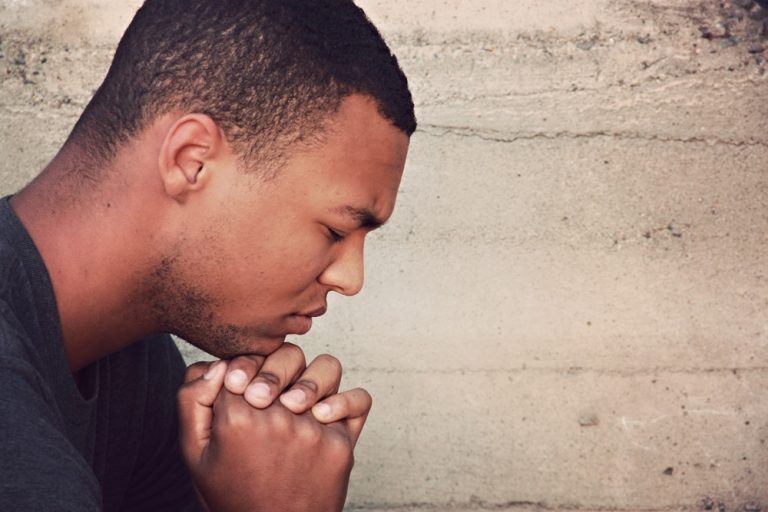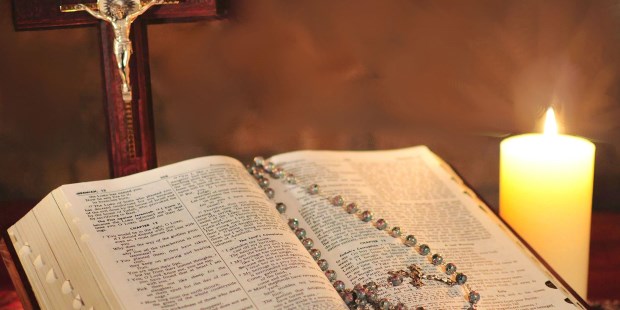Examination of conscience for children in confession
Through the examination of conscience for children, he can confront his daily behavior with the truth of the gospel. With the help of this article you will be able to know everything about the examination of conscience for children , first communion, first confession and much more, do not stop reading it.
What is the examination of conscience?
It is an act that all Catholics carry out regardless of age, it is similar to preparing a questionnaire to study, before presenting a test at school. That is to say, it is a set of questions that you ask yourself mentally, and what it seeks is to make you examine your conscience and verify if you have committed any sin, through prayer before God.
In general, when you prepare for the catechism, they give us some examples of the questions that serve as a guide to carry out the examination of conscience for children, but the ideal is that we are the ones who manage to connect with our interior and find in the stored memories , those sins that we could commit, according to the teachings that the Holy Church gives us.
Doing a good examination of conscience is the previous step to making a good confession. In the same way, it is very convenient that an examination of conscience be carried out every night before going to sleep. It is a requirement demanded by the church, that an examination of conscience is made for first communion children , as part of the preparations to receive the sacrament.
How to do the examination of conscience for children?
For your examination of conscience to really have the desired effect, it is ideal that you go to a place in the house where you will not be interrupted and that you will not be disturbed by the noise of cars, music or the fights of your little brothers.
You pray the Our Father and remember that the exam is a very personal act, only you have the power to connect with Divine Grace. But as a suggestion, we present the following instructions:
- Ask the Holy Spirit to enlighten you so you can remember which sins you commit and which displease God the most.
- Now begin to review, one by one, the ten commandments so that you know what faults you have committed against them. For example:
First Commandment : You shall love God above all things
It is important that you love God more than any other person or thing on earth, since He loves you infinitely. The questions that you can ask yourself to know if you have sinned against us can be the following:
- Do I really love God more than all things?
- Do I say my prayers when I wake up, before I go to sleep, bless the food at each meal and pray when I start my tasks?
- Am I ashamed to express my faith publicly?
- Have I been superstitious in believing in spiritualists, amulets, witches, horoscopes, and other things other than the gospel?
- Have I made fun of the things of God with my friends?
- Do I prefer to entrust my problems to a little friend to ask for help, before blindly trusting in God?
Second Commandment : You shall not take God’s name in vain.
It is necessary that you honor the name of God and respect everything that refers to Him. To find out if you have fouled us, you can ask yourself these questions:
- Have I pronounced the name of God, of his son Jesus, that of the Virgin Mary, without respect?
- Did I swear without being necessary or have I named God, for some nonsense?
- Have I made promises to God and not kept them?
- Do I say or write bad words?
- Have I been a mocker with the name of God?
Third Commandment : You will sanctify the parties.
You have been told for as long as you can remember that the best way to be in accordance with this commandment of God is to attend mass on Sundays and holidays, such as Lent and Easter. To live in harmony with this third commandment, you can internalize, asking yourself:
- Didn’t I go to a Sunday mass, under the pretense that it was the final soccer game, watching a TV show, or some other silly excuse?
- Am I late for mass, so as not to participate in the entire Eucharist?
- Am I easily distracted during mass, by talking or playing?
- How many times have I missed mass on Sundays in a month?
Fourth Commandment : You shall honor your father and your mother
It is essential to be in communion with God, that you love your parents very much, that includes that you respect them, that they obey when they give you an indication and help them in whatever they need. The questions that are suggested for you to determine if you have sinned are:
- Do I constantly disobey my parents?
- Have I made fun of them?
- Am I saddening my parents with my behavior?
- Am I ashamed of the parents I have?
- Do I behave respectfully with adults around me?
- Am I rude to my parents and relatives?
Fifth Commandment: You shall not kill.
Your conversation with the Creator of the universe should revolve around what you do to preserve the life of all living beings. In other words, you are a child who takes care of your pets and you don’t mistreat your little friends’ animals, you don’t fight with your little brothers, among others. By asking yourself the following questions, you will know if you are a respectful child of the fifth commandment:
- Have I had fights with the rest of the boys or girls, from my school or community?
- Do I abuse my siblings, or other children, younger than me?
- Am I bad with the little animals that are unprotected on the street?
- Do I hate or envy someone, other people or children?
- Do I want my siblings or friends to do bad homework?
- Am I a child who swears?
- Do I not ask God for forgiveness, for those I have treated badly?
Sixth Commandment: You shall not commit impure acts .
To gain eternal life and feel the true presence of God in your life, you must live in purity with the commandments of God. From a young age you must respect your body and that of others around you. You have to live each stage of life when it corresponds, you should not experience acts related to sex without having sufficient mental maturity.
It is a very controversial topic, an examination of conscience, for children who believe they have sinned, can determine it through the following questions:
- Impure thoughts have come to my mind, and I have not had the courage to pray to God, to intercede for me, and come to my aid?
- Have I had access to material with sexual content, and have I shared it with my little brother and friends at school?
- Do I dedicate myself to telling rude jokes to my friends in my spare time?
- Have I participated in sinful activities alone, or with other friends?
- Among my friends, is there one who makes me commit sins?
Seventh Commandment: You shall not steal.
Life in holiness, happens by not taking anything that is not yours. Taking something from another person against their will is theft. Taking a crayon from the school desk while your classmate is careless is stealing. So that you can know if you have repeatedly transgressed this commandment, ask yourself these questions:
- Do I keep objects that do not belong to me?
- Do I accept gifts, even knowing they are stolen?
- Do I keep the books, toys or other objects that are loaned to me?
- Have I caused damage to other people’s property?
- I don’t pay my parents back after running errands?
Eighth Commandment: You shall not bear false witness or lie.
It is very important that you always stay on the path of truth. There is a saying that lies, that lies have very short legs, that’s why in the face of a lie, at some point you will be discovered. God is the truth, and what goes against the truth is not of God. When you examine your conscience, ask yourself these questions:
- I’m a liar?
- Have I put other people at risk through my lies?
- Do I make comments about my brothers, being lies?
- Did I cheat on my school exams?
- Do I doubt that God will always help me?
Ninth Commandment: You will not indulge impure thoughts or desires.
Your behavior must be as blameless as possible, to achieve this, you do not have to think about sinful things, nor is it convenient in the eyes of God, that you see or talk about sexual issues that are not for educational purposes. Check your behavior, through the following questions:
- Do I show my body or do I see that of other friends, naked?
- Do I have impure thoughts?
- Do I talk about sexual topics, without educational purposes?
Tenth Commandment: You shall not covet the property of others.
If you want to enter the kingdom of God, you should never have thoughts of staying or taking things from other little friends. The questions you should ask yourself and determine if you have sinned are:
- Am I envious of my siblings and friends?
- Does it make me angry because others have something that I can’t have?
- Do I spoil my friends’ toys, because they are not mine?
- Am I dissatisfied with what I have and God has given me?
Children’s Confession Guide
It is convenient that an examination of conscience be made, for children who make their confession.
- Pray to the Holy Spirit to help you.
- Think about the sins you will tell the priest.
- Make the sign of the cross when you enter the confessional.
- You must say, “Bless me, father, for I have sinned.” And then you say your sins.
- Listen to advice and penance.
- Make the Act of contrition, before completing your penance.







